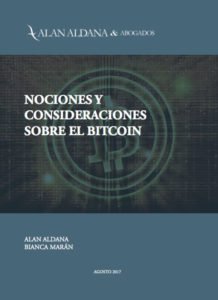Imagining a monetary system of digital exchange requires a mental effort, in spite of the technological progress that humanity is experiencing today. Such an event had not been possible until 1998 with the appearance of the digital currency or cryptocurrency, since mankind had always used material references for monetary transactions.
If abstraction is needed to mentally recreate this possibility, legally regulate the activity to turn it into a secure and reliable monetary transaction is a complicated task, since it escapes from all known and socially established formats. It is not in vain that the irruption of the first digital currency is generating important changes in the world economy, which have merited the study of the implications and consequences of this technology.
The United States, Japan and Luxembourg have taken on the responsibility of pioneering the use of digital currency. From their spaces, these three countries have developed legal regulations to regulate the process, in order to ensure the safety of users and the transparency of actions. In that sense, the Asian nation has imposed greater controls and requirements when allowing the use of cryptocurrency, while the United States has been a little more flexible in its regulations.
After its first appearance in 1998 by the Japanese engineer Wei Dai, it was not until 10 years later that a group of people under the pseudonym "Satoshi Nakamoto" took up the proposal and perfected it to design the first open source Bitcoin protocol, which also gives its name to the first known cryptocurrency.
The purpose of Bitcoin is to employ a value exchange system based on an electronic currency, without the intervention of government agencies. These characteristics allowed it to be of great use in 2009 in the face of the collapse and global crisis that the financial sector was experiencing at that time. Through the cryptocurrency, users could send and receive money among themselves, without needing the mediation of an intermediary.
Basically it is a coin that is not perceptible by human senses. and is used to exchange goods and services exclusively through electronic channels. It also proposes an efficient, reliable and easy to exchange monetary system that does not generate inflation, since the network itself is responsible for issuing Bitcoins in a decentralized manner, based on real demand.
Another reported benefit of this monetary order is that its verification is subject to computational power. capable of resolving highly complex IT problems and allowing the certification of transactions without compromising the system.
Cryptocurrencies Is it the same for everyone?
The novelty of the digital monetary system has not yet allowed the standardization of its processes, nor the regulation of its uses. Each country has defined, according to its own criteria and needs, the most convenient way to use it.
Taking as a reference the three countries that have succeeded in developing clearer regulations in this regard, in Alan Aldana & Abogados we reviewed the regulations, in an attempt to project Venezuela in the use of cryptocurrency.
Not all nations consider it as a currency on a par with traditional currencies. In the United States, Luxembourg and Japan, it is referred to as a digital good. In the United States it was identified as a raw material, as is the case with gold, oil and gas. It was called a "commodity" because it is a product or good demanded without qualitative differentiation in purchase and sale operations.
This legal definition, created in the United States, is the most widely used in the world.The digital currency is considered a consumer good. For its part, in most European countries it is defined as a conventional means of payment, on a par with traditional payment systems such as coins and banknotes.
However, both conceptions start from the principle of the legitimate nature of the activity of producing and trading digital currencies. The United Nations (UN), through the Economic Commission for Latin America and the Caribbean (ECLAC), after conducting an exhaustive study, recommended the use of digital currency in the Caribbean and proposed the promotion of financial research to facilitate the process of integration of the system and encourage regional cooperation in this regard.
Bitcoin in the national territory
In view of the lack of clarity on the legal regulations defining digital currency systemsIn order to establish a clear and general overview showing the advantages and disadvantages of the acceptance and use of cryptocurrency in Venezuela, it is necessary to establish a clear and general overview showing the advantages and disadvantages of the acceptance and use of cryptocurrency in Venezuela.
At Alan Aldana & Abogados we aim to initiate research into the policies and measures to support the legality of activities involving transactions with digital currencies, in order to guarantee the necessary security to the user.
How should digital currency be classified in Venezuela?
This is one of the first concerns to be resolved in our proposal, taking into account the few laws and policies in the world on this issue.
In order to bring light into the darkness, we have put forward some considerations to facilitate the transition to this monetary system. The first recommendation lies in the incentive - by the competent authorities - to participate in the digital economy, which includes investing in the opportunities offered by digital currency and reviewing the policies adopted in countries such as the United States and Japan.
The operation of digital currency in the country will also require the development of specialized programs. to avoid money laundering, terrorist financing and any other illicit transaction. To prevent this type of acts it is important to know the client in depth and to have access to information that allows corroborating the legality of the processes.
In addition, the implementation of the cryptocurrency requires the following cyber security systems robust to protect the stored information and reduce the risks of vulnerability.

In the following text we detail our proposals on the possibility of establishing digital currency as a monetary figure in Venezuela and offer a broad overview of its creation and operation in other countries.













